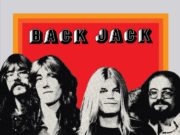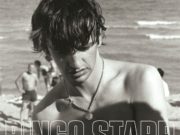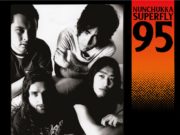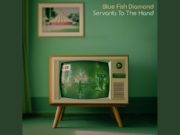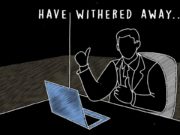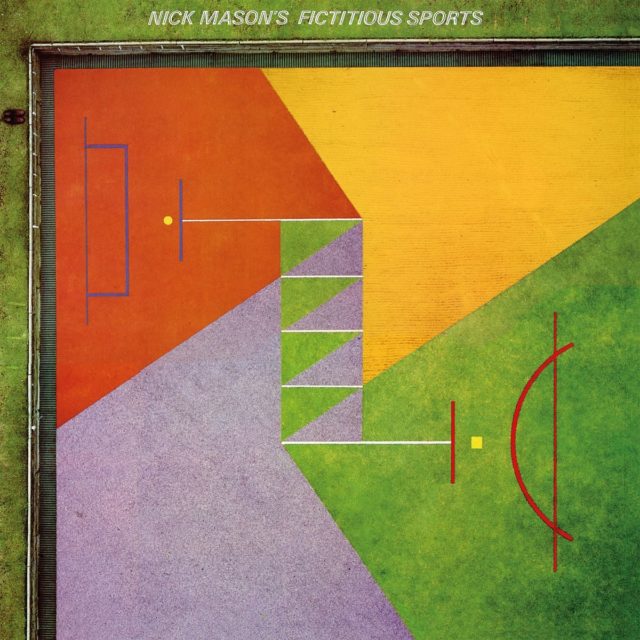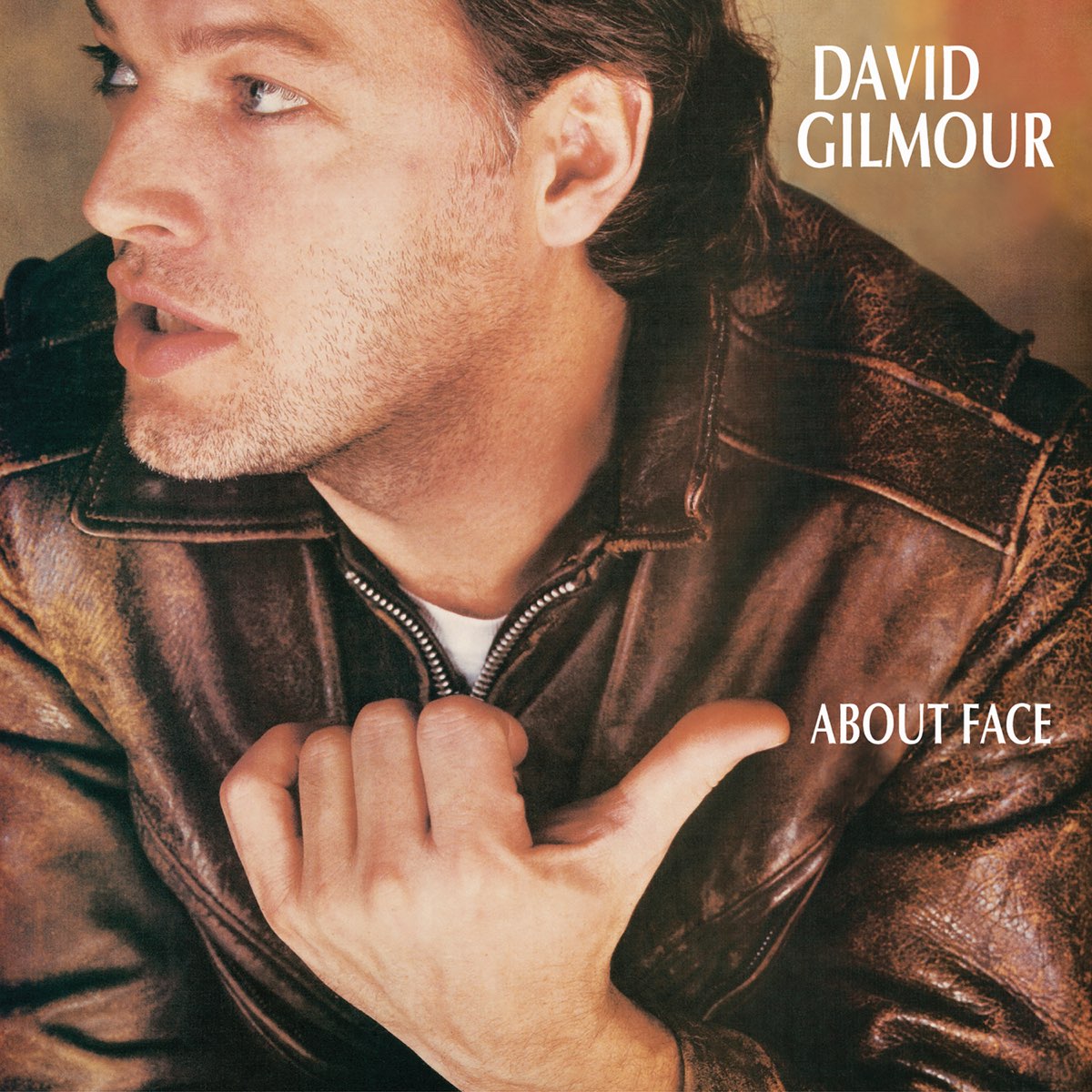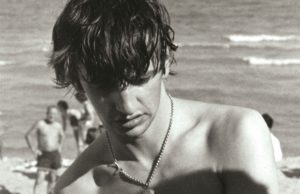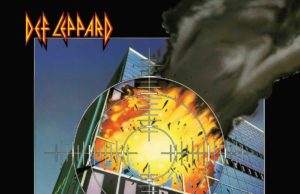 I like Nick Mason for the same reasons I like Ringo Starr — neither were the greatest drummers ever, but they were the right drummer for their famous bands (Pink Floyd and The Beatles respectively). They are also quite likeable dudes and have other talents: Mason is a published author and is an accomplished racecar driver, while Starr is a decent actor.
I like Nick Mason for the same reasons I like Ringo Starr — neither were the greatest drummers ever, but they were the right drummer for their famous bands (Pink Floyd and The Beatles respectively). They are also quite likeable dudes and have other talents: Mason is a published author and is an accomplished racecar driver, while Starr is a decent actor.
Both men have successful solo careers as well, though Mason is the only one of the pair who can reasonably argue that at least one of his own albums is superior to some of those he contributed to in his famous band. Starr’s best album is 1973’s Ringo album. But it’s not better than anything The Beatles ever put out. Mason’s best album is his first, Nick Mason’s Fictitious Sports from 1981. It’s easily a better record than The Final Cut, Momentary Lapse of Reason, The Division Bell, The Endless River and Ummagumma. It’s also quite a challenging record — mixing fusion with avant-garde new wave and alternative rock.
Robert Wyatt of The Soft Machine sings lead vocal on almost every track. He and Mason go back a long way, having both been drummers for the biggest bands on the psychedelic circuit. Wyatt played drums for a few tracks on Floyd founder Syd Barrett’s first solo album The Madcap Laughs. In 1973, a drunken Wyatt fell out of a fourth-floor window at a birthday party and broke his spine. Pink Floyd played two benefit shows with Soft Machine for him, raising £10,000 for their friend, who has been in a wheelchair since the accident. Mason produced Wyatt’s first post-accident solo album Rock Bottom, and appeared with him on Top Of The Pops when Wyatt’s (also Mason-produced) cover of Neil Diamond’s I’m A Believer cracked the Top 30 in 1974.
When Wyatt began working with Austrian avant-garde trumpeter Michael Mantler in the mid-70s, he got Mason involved — first doing spoken-word voice-over work on 1976’s The Hapless Child, and eventually as Mantler’s drummer on 1983’s Something There. Mantler’s wife at the time, Carla Bley, plays keyboards on the Fictitious Sports album, co-produced it with Mason and wrote all of the songs. It was recorded in October 1979 at Mantler and Bley’s Grog Kill Studio in upstate New York, not far from areas made famous by Bob Dylan, The Band and Todd Rundgren. Recording of The Wall was technically still taking place ahead of its rushed release on Nov. 30.
As I said, Fictitious Sports is a challenging record — perhaps the most adventurous Floyd solo album after Music From The Body, which Roger Waters and Ron Geesin (Atom Heart Mother) made in 1970. The difference?Mason’s album is cool, kinda timeless, and loaded with incredible performances. And, like I also said, throughout the album Mason is “just right” for the role. If he were a more technical drummer, the music would be too busy, less listenable. It’s experimental and complicated at times, but never self-indulgent. Fictitious Sports is a slow burner. It sounds much better the second time around. There’s some cool and catchy bits but no immediately catchy songs — kinda typical with a lot of prog records, which this basically is.
And I’m not sure Wyatt is the best vocalist for some of these songs. I’d actually love to hear Mason sing one, but he only ever lent his voice to four Floyd songs — the aborted Barrett-penned single Scream Thy Last Scream (1967) finally released in 2010, Corporal Clegg from Saucerful of Secrets (1968), Merry Xmas Song (1969) and the famous, menacing title lyric in One of The Days from Meddle (1971). You can also hear his voice in both Signs of Life and Learning To Fly on 1987’s Momentary Lapse of Reason.
But without further ado, Let’s dive into Fictitious Sports.
The album opens with the fantastic Can’t Get My Motor To Start. It’s funny — almost like something from a Broadway musical, except with Robert Fripp-like aggressive guitar and staccato everything. It features vocal contributions from several people, mostly from contralto Karen Kraft. The uber-talented Kraft is even more prominent on Hot River at the end of Side 1, where she puts on a Clare Torry-like performance. You’ve probably heard Kraft’s voice many times before, as she sang some Polaroid and McDonald’s jingles in the 1970s.
From here on, it’s the Wyatt show. I Was Wrong is another excellent track with fantastic horn performances and arrangement. Wyatt’s vocal is quite a contrast to the song’s cool, repetitive bassline. I’d love to hear the bassline with a touch of fuzz on it. Wyatt’s vocals are, of course, quite unique as always. It has a distinct Englishness and seems vulnerable, almost strained at times, despite his great range. At some points on the album, Wyatt’s vocal is pretty buried in the mix, which one has to assume is by design. The gold star on this track goes to sax player Gary Windo — who worked extensively with Wyatt and Bley.
Siam is next. This one is a slower, hypnotic one with a fantastic middle section that hangs on the guitar of Chris Spedding. Oh, Spedding has had himself a career. He’s played with everyone, and was even the guy who recorded the first demos by The Sex Pistols. Fictitious Sports has some of his best work on it, but for my money, Spedding’s greatest moment is as the guitarist on Jump Into The Fire by Harry Nilsson. The only problem I have with Siam is the derivative keyboard refrain, which is stereotypically “Asian.” It’s kind of half of the one throughout Kung Fu Fighting and at the start of Turning Japanese by The Vapors (which was a hit at the time).
The aforementioned Hot River wraps up the side — by far the most “Pink Floyd” track on the record. There is gorgeous slide work by Spedding and the ending gets HUGE. It’s quite something.
Side 2 starts much the same as the first did, with a quirky number. Boo To You Too is an upbeat, post-punk kind of thing, almost ska at times, reminiscent of The Attractions-era Elvis Costello (also big at the time). It does have a swinging guitar solo, though. Like, stage-bandy almost.
The jazzy, chill Do Ya? is next. It’s lovely, but Wyatt gets a little tedious here. Mostly, I find this one boring. Wervin’ follows, and has an ’80s King Crimson feeling. It would be better with Adrian Belew singing, of course, and it tries to be a little too cute. This one is another feather in Windo’s cap.
The album’s closer is the bizarrely titled I’m A Mineralist. This one’s a slow epic with great trumpet (played by Mantler himself) and trombone lines (Gary Valente). The coolest thing about I’m A Mineralist is the phrasing and timing of the backing vocals in the eerie middle section — they keep shifting where they start. It’s pretty awesome.
Mason considers the album a sort of experiment and an exercise in stepping out from Waters’ increasing control, and perhaps his own self-doubt. Jeff Porcaro played drums on Mother from The Wall, while Andy Newmark drummed on Two Suns In The Sunset from The Final Cut, due to the complex time signatures. There certainly are plenty of those on Fictitious Sports — just no Floyd members.
In terms of Floyd connections, the album artwork is by Hipgnosis (and Geoff Halpin) and it was mixed by Floyd producer James Guthrie.
4/5
• • •
Bricks In The Wall: Pink Floyd Solo Albums
When you stack up all the solo efforts along with the discography of the main band, there have been more than 60 Pink Floyd-related releases — including live and compilation records but excluding singles and boxed, commemorative or remixed / remastered sets. That’s a lot of material for collectors. Here’s my best effort to catalog the solo timeline:
1970
Syd Barrett | The Madcap Laughs (July)
Syd Barrett | Barrett (November)
Roger Waters & Ron Geesin | Music From The Body (November)
1978
David Gilmour | David Gilmour (May)
Richard Wright | Wet Dream (September)
1981
Nick Mason | Nick Mason’s Fictitious Sports (May)
1983
Michael Mantler | Something There (Mason on drums)
1984
David Gilmour | About Face (March)
Roger Waters | The Pros and Cons of Hitchhiking (April)
Zee (Richard Wright & Dave Harris) | Identity (April)
1985
Mason & Fenn | Profiles (July)
1986
Roger Waters & The Bleeding Heart Band | When The Wind Blows soundtrack (May)
Mason & Fenn | Life Could Be A Dream soundtrack
1987
Syd Barrett | The Peel Session (January)
Mason & Fenn | White Of The Eye soundtrack (January)
Roger Waters | Radio K.A.O.S (June)
Mason & Fenn | Body Contact soundtrack (Unreleased)
1988
Syd Barrett | Opel (October)
Mason & Fenn | Tank Malling soundtrack (Unreleased)
1990
Roger Waters | The Wall Live In Berlin (August)
1992
Roger Waters | Amused To Death (September)
1996
Richard Wright | Broken China (October)
2000
Roger Waters | In The Flesh Live (December)
2005
Roger Waters | Ça Ira (September)
2006
David Gilmour | On An Island (March)
2008
David Gilmour | Live in Gdańsk (September)
2015
David Gilmour | Rattle That Lock (September)
Roger Waters | The Wall Live (November)
2017
Roger Waters | Is This The Life We Really Want? (June)
David Gilmour | Live At Pompeii (September)
2018
Roger Waters | Igor Stravinsky’s A Soldier’s Tale (October)
2020
Nick Mason’s Saucerful of Secrets | Live at the Roundhouse (September)
Roger Waters | Us + Them Live (October)
2022
Roger Waters | The Lockdown Sessions (December)
2023
Roger Waters | Dark Side Of The Moon Redux (October)
• • •
Area Resident is an Ottawa-based journalist, recording artist, music collector and re-seller. Hear (and buy) his music on Bandcamp, email him HERE, follow him on Instagram and check him out on Discogs.



